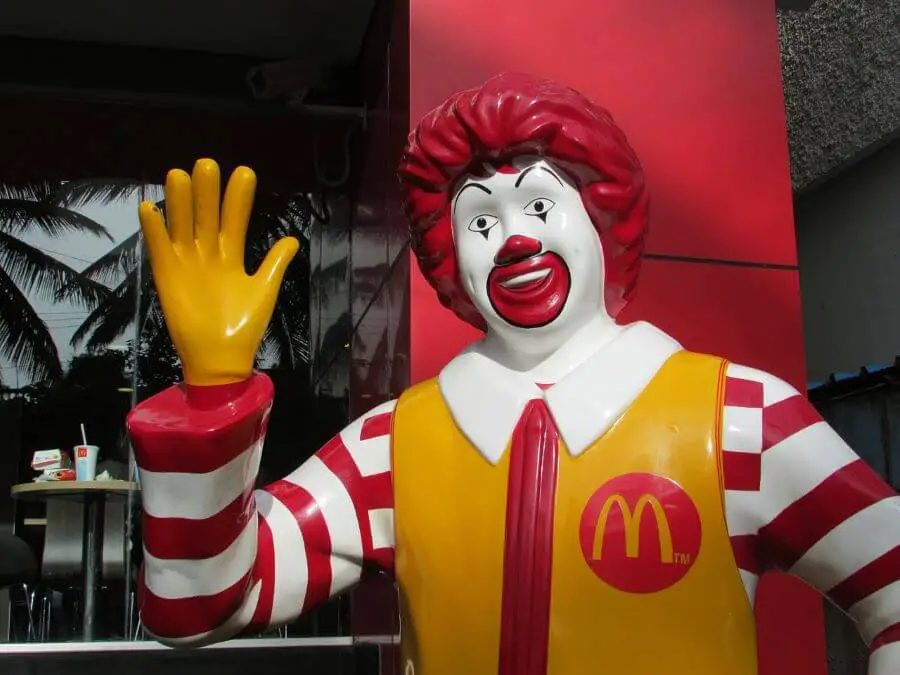In today’s fast-paced society, fast-food chains like McDonald’s have become a staple in many individuals’ diets.
Serving millions of meals every day across the globe, these establishments must maintain strict food safety standards to ensure the well-being of their customers.

However, mistakes can happen; sometimes, these errors can lead to profound health implications for the consumers involved. One such error is the serving of undercooked or raw food.
When faced with this situation, a question often arises: Can you sue McDonald’s for serving raw food?
While using a massive corporation like McDonald’s might seem daunting, it’s essential to understand that consumer rights laws exist to protect individuals in such situations.
However, the answer to this question is more complex than ‘yes’ or ‘no.’ It depends on several factors, including the severity of the harm caused, the specific circumstances of the case, and the laws in the jurisdiction where the incident occurred.
Understanding the Legal Grounds
The legal grounds for suing a restaurant like McDonald’s for serving raw food typically revolve around the concept of negligence. In legal terms, negligence refers to a failure to take reasonable care to avoid causing injury or loss to another person.
In the context of a restaurant, negligence could mean failing to adhere to food safety regulations, resulting in undercooked or raw food being served.
To have a valid negligence claim, you must prove four elements: duty of care, breach of duty, causation, and damages. Duty of care refers to McDonald’s responsibility to serve safe, properly cooked food.
A violation of duty would be the serving of raw or undercooked food. Causation means you must show that the raw food directly caused your illness. Lastly, damages refer to any costs you incurred due to the disease, such as medical bills or lost wages.
However, being served raw or undercooked food may not be sufficient grounds for a lawsuit if no harm was suffered. This is because of a fundamental principle in personal injury law often summed up as “no harm, no foul.”
If you did not consume the food and subsequently fell ill, you generally could not sue because no actual harm was done.
Precedents and Lawsuits
Looking at previous lawsuits against fast-food chains can provide insight into the chances of success in a potential lawsuit against McDonald’s for serving raw food.
There have been several high-profile cases where customers have successfully sued fast-food chains for illnesses caused by undercooked or contaminated food.

For instance, in 1993, the fast-food chain Jack in the Box faced multiple lawsuits after an E.coli outbreak linked to undercooked burgers resulted in hundreds of people falling ill and four deaths. The company ultimately paid out millions of dollars in settlements.
On the other hand, there have also been unsuccessful lawsuits against fast-food chains. In 2002, a group of teenagers filed a lawsuit against McDonald’s, alleging that the fast-food chain’s meals had caused their obesity and related health problems.
However, the judge dismissed the case, ruling that the plaintiffs hadn’t provided enough evidence to prove that McDonald’s food was the direct cause of their health issues.
See also: Can You Compost McDonald’s Boxes?
These cases illustrate the complexities of suing a fast-food chain like McDonald’s. Success often hinges on proving that the restaurant’s negligence directly caused harm.
Filing a Personal Injury Claim
If you decide to pursue a lawsuit against McDonald’s for serving raw food, it would likely be a personal injury claim. In this type of lawsuit, you’re essentially claiming that you suffered harm due to the negligence of another party – in this case, McDonald’s.
You must gather evidence to support your case to file a personal injury claim. This would include medical records showing that you fell ill after eating the undercooked food, a receipt or other proof of your purchase, and, ideally, a raw food sample.
You would also need evidence of your damages, such as medical bills, proof of lost wages, and any other costs you incurred due to your illness. Once you have gathered all your evidence, you will file a complaint in the appropriate court.
This document outlines your allegations and the damages you are seeking. McDonald’s would then have the opportunity to respond to your complaint, and the case would proceed from there, potentially leading to a trial if a settlement isn’t reached.
Potential Challenges and Considerations
While it’s legally possible to sue McDonald’s for serving raw food, knowing the potential challenges and considerations is essential. One of the biggest hurdles in these types of cases is proving causation.
Many foodborne illnesses have incubation periods of 24 hours or more, making it difficult to confirm that your disease was caused by the meal you ate at McDonald’s and not something else you ate earlier or later.

Furthermore, pursuing a lawsuit can be lengthy, stressful, and expensive. Even if you win your case, the damages awarded may not be substantial unless you suffered severe illness or injury.
Legal fees can be hefty, and unless your case is taken on a contingency basis (where the lawyer only gets paid if you win), you could end up paying out of pocket even if you lose your case.
Conclusion
In conclusion, while it is technically possible to sue McDonald’s or any restaurant for serving raw food, doing so successfully requires proving that the restaurant’s negligence directly resulted in harm or injury.
It’s a decision that shouldn’t be taken lightly, and it’s always recommended to consult with a legal professional to understand your rights, evaluate the merits of your case, and navigate the complex legal process.
Knowledge is power, and understanding the legal landscape can help you make informed decisions about how to proceed if you find yourself in this unfortunate situation.





